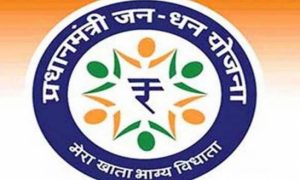New Delhi: The Indian government’s Pradhan Mantri Annadata Aay SanraksHan Abhiyan (PM-AASHA) has significantly benefited farmers, particularly small and marginal ones, since its launch in September 2018. The program, aimed at providing price assurance for pulses, oilseeds, and copra, has resulted in the procurement of 195.39 lakh metric tonnes (LMT) of these commodities, valued at ₹1,07,433.73 crore, from 99,30,576 farmers, a PIB press release stated.
Read More: PM Surya Ghar Yojana: Grant Up to ₹78,000 to Reduce Electricity Bills
During the recent Rabi 2023-24 season alone, 6.41 LMT of pulses, valued at ₹4,820 crore, were procured from 2.75 lakh farmers. This included 2.49 LMT of Masoor, 43,000 metric tonnes of Chana, and 3.48 LMT of Moong. Additionally, 12.19 LMT of oilseeds, valued at ₹6,900 crore, were procured from 5.29 lakh farmers.
The ongoing Kharif season has seen the government procure 5.62 LMT of Soyabean, valued at ₹2,700 crore, benefiting 2,42,461 farmers. This intervention, undertaken through the Price Support Scheme (PSS) component of PM-AASHA, has provided much-needed relief to farmers impacted by lower market prices. The government fixes the Minimum Support Price (MSP) for 24 crops at 1.5 times the Cost of Production (CoP) to ensure remunerative prices for farmers and encourage higher investments in farming.
Read More: Tirumala Tirupati Devasthanams: No Privilege Darshans During Vaikunta Ekadasi In January 2025
PM-AASHA operates through a multi-pronged approach, including the Price Support Scheme, Price Deficiency Payment Scheme (PDPS), and Market Intervention Scheme (MIS). The PSS, implemented in collaboration with state governments, involves the procurement of notified commodities at MSP levels. The PDPS provides direct payments to oilseed producers to bridge the gap between MSP and market prices.
The Market Intervention Scheme (MIS), a component of PM AASHA, provides financial assistance to states for price stabilization of perishable agricultural/horticultural commodities like Tomato, Onion and Potato etc. not covered under MSP. This scheme addresses the price volatility often experienced with these crops, benefiting both farmers and consumers.
Read More: 17.80 Lakh New Employees Enrolled Under ESIC In October, Posts 3% Growth
The government’s commitment to farmer welfare is evident in the continued expansion and refinement of PM-AASHA. In September 2024, the Cabinet approved the continuation of the integrated scheme, incorporating the PSS, PDPS, and MIS. The program’s impact extends beyond mere procurement, providing a safety net for small and marginal farmers, reducing post-harvest losses, and ensuring timely payments. By stabilizing market prices and providing assured incomes, PM-AASHA is empowering farmers and contributing to rural economic growth.





































